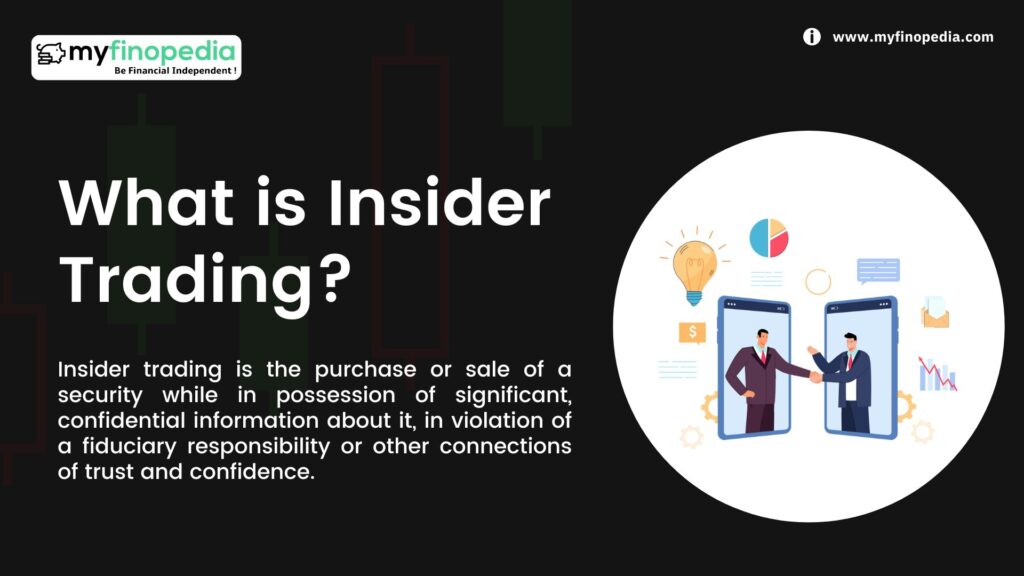Insider trading is the purchase or sale of a security while in possession of significant, confidential information about it, in violation of a fiduciary responsibility or other connections of trust and confidence. By giving people with access to privileged information an unfair edge, this behavior compromises the integrity of the financial markets. Insiders are people who are close to the company and have access to secret information, such as employees and company executives.
What is the Foundation Of This Trading?
Insider trading is strongly forbidden by the Securities and Exchange Board of India (SEBI) and is seen as a breach of securities laws. Penalties for enforcement activities might include fines and jail time, as well as criminal and civil penalties. The fundamental idea is to make sure that all investors are on an equitable playing field and to stop anyone from taking advantage of their position to have a competitive advantage.
The foundation of insider trading cases is the demonstration that the trader possessed important information that was not publicly publicised and made trading decisions based on it before the general public did.
Any information that could have an impact on a company’s stock price is included in the broad definition of material information.
What are Some Other Measures to Keep in Mind?
It is frequently necessary to use advanced monitoring techniques and data analysis to find insider trading. Regulators keep an eye on odd trading patterns, big stock trades, and connections between insiders of the company and traders. It can be difficult to prove an obvious connection between the insider information and the traded securities for prosecutions to be successful.
Companies enforce stringent internal controls, inform staff members of their legal responsibilities, and keep an eye on internal trading activity in order to prevent insider trading. Furthermore, in an effort to preserve the integrity and equity of the financial markets, regulatory organisations update and modify their regulations on a regular basis to reflect changing market conditions and technological advancements.






